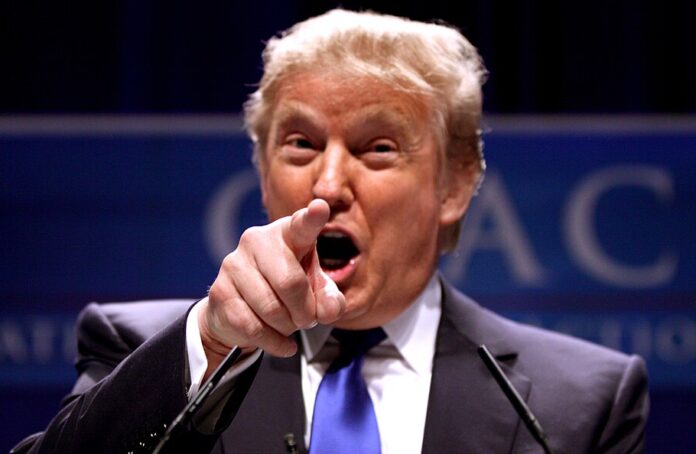Trump’s strikes on Iran spark fierce debate over presidential powers and constitutional limits
President Donald Trump’s decision to order military strikes on several Iranian nuclear facilities over the weekend has ignited a fierce debate across the political spectrum, with lawmakers and legal experts questioning whether he acted within his constitutional authority.
The strikes, which reportedly targeted key nuclear enrichment sites, were launched without prior approval from Congress. Critics, including members of Trump’s own Republican Party, expressed concerns about the legality of the operation. Congressman Thomas Massie labelled the strikes “not Constitutional,” while Warren Davidson questioned the constitutional rationale behind them. However, House Speaker Mike Johnson defended Trump, stating that the president acted within his powers due to an imminent threat.
The legal debate hinges on two sections of the US Constitution. Article I grants Congress the power to declare war, while Article II designates the president as commander-in-chief of the armed forces. The Trump administration argued that this latter provision justified the strikes, citing the need to prevent nuclear proliferation as an urgent national interest.
Legal scholars told BBC Verify that presidents historically possess some authority to order limited military action without Congress, particularly when facing immediate threats. Claire Finkelstein of the University of Pennsylvania Law School noted, “There is a long-standing practice of presidents engaging in isolated military engagements without congressional approval.” Jessica Levinson at Loyola Marymount University added that such authority exists provided the action “doesn’t begin to resemble a war.”
Embed from Getty ImagesHowever, some experts, such as Professor Andrew Rudalevige of Bowdoin College, disagreed. He argued that Trump’s strikes lacked the justification of an immediate attack to repel. The absence of a clear, sudden threat, he said, made the president’s legal authority more questionable.
The use of force without a formal war declaration has become more common. Since Congress last declared war in 1942 after Pearl Harbor, successive presidents have ordered military action independently. Examples include Barack Obama’s airstrikes in Libya and the operation that killed Osama bin Laden, Bill Clinton’s campaign in the Balkans, and Joe Biden’s strikes against Houthi and Syrian targets.
Speaker Johnson defended Trump by pointing to such precedents. “Presidents of both parties have acted with the same commander-in-chief authority under Article II,” he said. He cited Obama’s Libya campaign as an example that drew little criticism at the time.
Beyond the Constitution, critics invoked the War Powers Resolution of 1973, passed to limit unilateral presidential military action following the Vietnam War. The law requires the president to consult Congress where possible before introducing armed forces into hostilities, and to formally notify lawmakers within 48 hours.
According to reports, Trump’s administration informed congressional leaders shortly before or after the strikes. Defence Secretary Pete Hegseth said Congress was notified after the aircraft safely exited Iranian airspace, meeting the War Powers Act’s requirements. Yet, legal advisers such as John Bellinger, who served under President George W Bush, said Trump did not appear to engage in substantive consultation with Congress, only providing cursory advance notice.
Ultimately, the legality of Trump’s strikes may depend as much on political consensus as on strict legal interpretation. With both historical precedent and constitutional ambiguity at play, the debate over presidential military powers is likely to continue well beyond the latest crisis.
